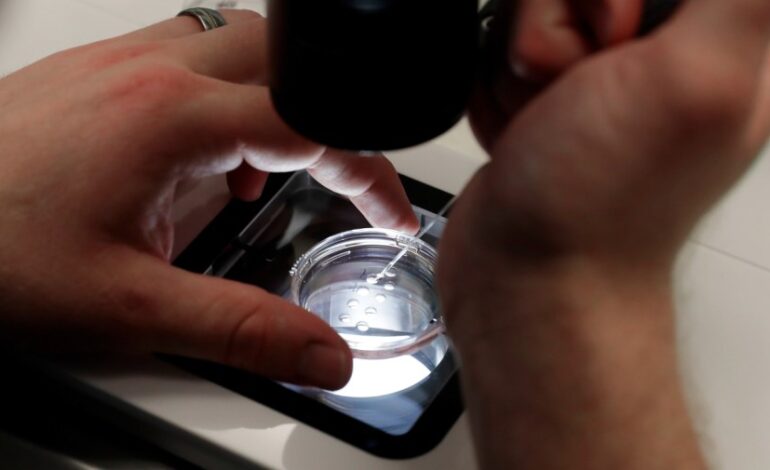Pro-Life Movement Faces Dilemma Over IVF Acceptance

The pro-life movement in the United States is grappling with a significant internal conflict regarding its stance on in vitro fertilization (IVF). As discussions intensify, many advocates are questioning whether the movement will embrace IVF methods that assist couples in conceiving or if it will falter under the weight of its own contradictions.
The debate over IVF is particularly pronounced within organizations such as the National Right to Life Committee, which has historically opposed practices they view as undermining the sanctity of life. Critics argue that IVF often involves the creation of multiple embryos, some of which may be discarded or left unused, creating ethical dilemmas for pro-life advocates.
Shifting Perspectives on Reproductive Technologies
Recent surveys indicate a noticeable shift in attitudes toward reproductive technology among pro-life supporters. According to a study by the American Society for Reproductive Medicine, approximately 60% of individuals identifying as pro-life now support IVF, recognizing its potential to help couples struggling with infertility. This evolving perspective highlights a growing acceptance of advanced reproductive technologies while maintaining a commitment to the belief in the sanctity of life.
While some proponents of the pro-life cause argue that IVF aligns with their goals by providing families with the opportunity to have children, others remain concerned about the ethical implications. The National Right to Life Committee has yet to formally endorse IVF, citing fears that acceptance could dilute their message or lead to further complications regarding embryo management.
The discussion around IVF was catalyzed by the U.S. Supreme Court’s decision in June 2022 to overturn Roe v. Wade, which has reignited debates on reproductive rights and the definition of life. As states establish varying laws surrounding reproductive health, the pro-life movement faces the challenge of defining its position on IVF within this shifting landscape.
Balancing Ethics with Family Aspirations
Advocates for IVF within the pro-life movement emphasize the importance of family building while adhering to ethical guidelines that respect the moral status of embryos. Some organizations are working to develop protocols that prioritize the welfare of embryos, such as transferring fewer embryos during IVF procedures to reduce the likelihood of embryo freezing or disposal.
Supporters argue that finding common ground on IVF could enhance the pro-life movement’s appeal, particularly among younger generations who may be more open to reproductive technologies. As the movement contemplates its future, the acceptance of IVF could play a crucial role in shaping its identity and messaging moving forward.
The pro-life movement’s ongoing dialogue about IVF reflects broader societal changes regarding reproductive health and technology. As more individuals confront infertility, the need for nuanced discussions that reconcile ethical beliefs with family aspirations becomes increasingly essential. The outcome of this internal conflict may ultimately redefine the pro-life movement, influencing its strategies and outreach in the years to come.
The pro-life movement stands at a crossroads, and how it navigates the complexities of IVF acceptance could have significant implications for its future direction. With the stakes higher than ever, the coming months may reveal whether the movement can find a cohesive stance that addresses both its foundational beliefs and the desires of those seeking to build families.






